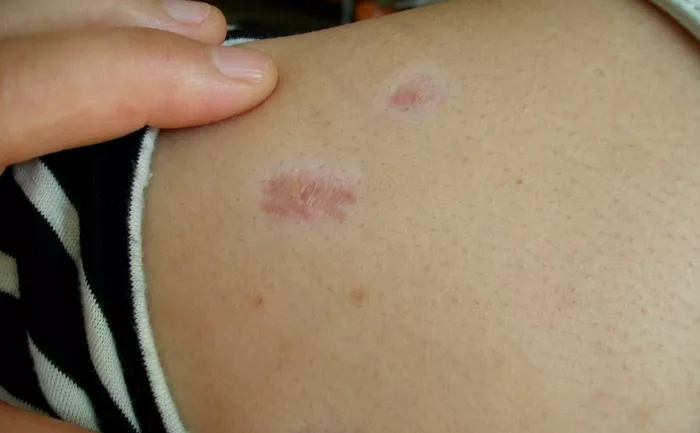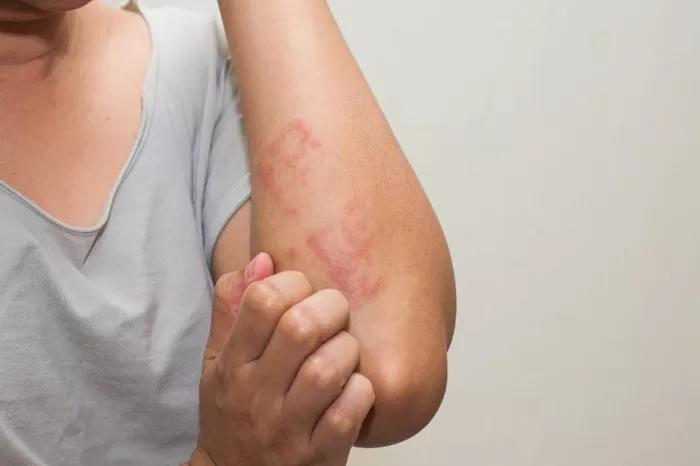Sulfite allergy is a condition in which the body reacts abnormally to sulfites, a group of chemicals commonly used as preservatives in food and beverages. Sulfites occur naturally in some foods, such as grapes and dried fruits, but they are often added to processed foods to prevent spoilage and discoloration.
Causes
The exact cause of sulfite allergy is unknown, but it is believed to be related to the body’s immune system. When a person consumes sulfites, the immune system may mistakenly identify them as a foreign invader and attack them. This reaction can lead to a range of symptoms, from mild to severe.
Risk Factors
Certain individuals are at an increased risk of developing sulfite allergy:
Asthmatics: People with asthma are more likely to develop sulfite allergy, as sulfites can trigger asthma attacks.
Individuals with a history of allergies: People who have allergies to other substances, such as penicillin or aspirin, are more likely to develop sulfite allergy.
Those with certain medical conditions: Certain medical conditions, such as heart disease, kidney disease, and liver disease, can increase the risk of sulfite allergy.
Age: Older adults are more likely to develop sulfite allergy.
Mechanism of Action
When sulfites are consumed, they are broken down into sulfur dioxide and sulfite ions. These ions can react with enzymes and proteins in the body, causing them to become inactive. This can lead to a number of symptoms, including:
Vasodilation: Sulfites can cause blood vessels to widen, leading to a drop in blood pressure and dizziness.
Bronchoconstriction: Sulfites can constrict the airways, making breathing difficult.
Anaphylaxis: In severe cases, sulfites can trigger anaphylaxis, a life-threatening allergic reaction.
Symptoms
The symptoms of sulfite allergy can vary in severity, depending on the individual. Mild symptoms may include:
1. kin reactions: redness, hives, itching
2. Respiratory symptoms: wheezing, shortness of breath
3. Gastrointestinal symptoms: nausea, vomiting, diarrhea
More severe symptoms may include:
1. Angioedema: swelling of the face, throat, or other body parts
2. Anaphylaxis: a life-threatening reaction that can lead to difficulty breathing, loss of consciousness, and even death
Diagnosis
Diagnosing sulfite allergy can be difficult, as it is often confused with other conditions, such as asthma and food allergies. The doctor may perform a skin prick test or a blood test to confirm the diagnosis.
Treatment
The primary treatment for sulfite allergy is to avoid consuming sulfites. This can be challenging, as sulfites are found in a wide variety of foods and beverages. It is important to carefully read food labels and to avoid any products that contain sulfites.
In some cases, the doctor may prescribe medication to help manage the symptoms of sulfite allergy. These medications may include:
Antihistamines: These medications can block the effects of histamine, a chemical that is released during an allergic reaction.
Leukotriene inhibitors: These medications can block the effects of leukotrienes, which are inflammatory chemicals that are released during an allergic reaction.
EpiPens: These devices deliver epinephrine, which can help to relieve the symptoms of anaphylaxis.
Prevention
The best way to prevent sulfite allergy is to avoid consuming sulfites. This can be difficult, as sulfites are found in a wide variety of foods and beverages. However, there are a few things you can do to reduce your risk of exposure:
Read food labels carefully. Sulfites must be listed on food labels in the United States. Look for the term “sulfites” or “sulfur dioxide” in the ingredients list.
Avoid foods that commonly contain sulfites. These foods include: Dried fruits (apricots, raisins, peaches, etc.), processed fruits and vegetables (canned, frozen, or jarred), wine and beer, vinegar, ickles, relishes, sauces and gravies, salad dressings, potato chips and other processed snacks
Be aware of hidden sources of sulfites. Sulfites can also be found in some medications, cosmetics, and industrial products.
Carry an epinephrine auto-injector (EpiPen). If you have a sulfite allergy, it is important to carry an EpiPen in case of an accidental exposure.
If you are unsure whether a food or beverage contains sulfites, it is best to avoid it. You can also talk to your doctor or a registered dietitian about how to avoid sulfites in your diet.
Conclusion
Sulfite allergy is a condition in which the body reacts abnormally to sulfites, a group of chemicals commonly used as preservatives in food and beverages. The exact cause of sulfite allergy is unknown, but it is believed to be related to the body’s immune system. The symptoms of sulfite allergy can vary in severity, from mild to severe. The primary treatment for sulfite allergy is to avoid consuming sulfites.
[inline_related_posts title=”You Might Be Interested In” title_align=”left” style=”list” number=”6″ align=”none” ids=”6011,6008,5998″ by=”categories” orderby=”rand” order=”DESC” hide_thumb=”no” thumb_right=”no” views=”no” date=”yes” grid_columns=”2″ post_type=”” tax=””]

































